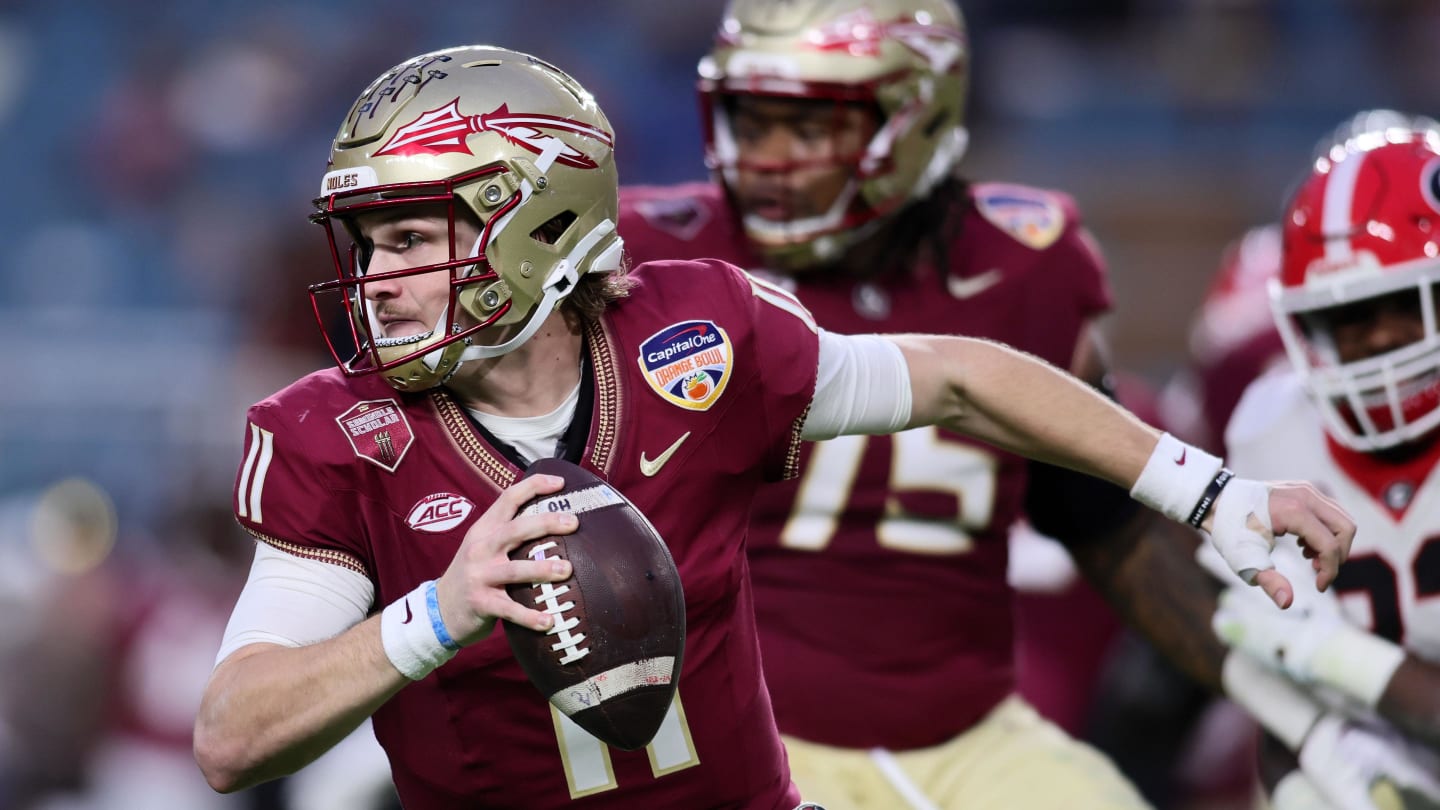Brock Glenn, a rising star in collegiate football and a key player for the Florida State Seminoles, recently made headlines with his
surprising move to another team. Glenn has accepted a staggering $96.8 million contract offer, marking one of the most significant
trades in recent college football history. This decision has sent ripples through the college football community, leaving fans, analysts,
and the Seminoles’ organization buzzing with speculation and concern about the future.
Glenn, known for his exceptional talent and leadership on the field, had been a pivotal part of the Seminoles’ recent successes. His
ability to execute under pressure, combined with his strong arm and field vision, made him one of the most coveted prospects. His
performance during the last season, where he led the Seminoles to several crucial victories, only solidified his status as a top-tier
player.

The $96.8 million contract offer from the other team is not only a testament to Glenn’s value but also reflects the evolving dynamics of
collegiate sports, where financial considerations are increasingly playing a critical role. This deal reportedly includes significant
performance bonuses and guarantees, emphasizing the new team’s commitment to leveraging Glenn’s potential for their success.
For the Florida State Seminoles, this trade represents a major loss. Glenn was seen as a cornerstone of their future, and his departure
leaves a notable void in their lineup. The Seminoles will need to pivot quickly to fill the gap left by Glenn’s exit. While the team has
talented players and promising recruits, replacing a player of Glenn’s caliber will be a considerable challenge.
The trade also raises questions about the broader implications for collegiate athletics. With the increasing flow of money into sports
programs and the lucrative contracts being offered to standout players, the landscape of college football is shifting. This trend
underscores the need for schools to adapt their strategies both in terms of recruitment and financial management to stay competitive.
As for Glenn, his move is a significant milestone in his career. It represents not only a financial windfall but also an opportunity to
showcase his skills at a new level and potentially lead a different team to success. The upcoming season will undoubtedly be a pivotal
one for him, as he looks to justify the considerable investment made in him and make a lasting impact on his new team.
In summary, Brock Glenn’s acceptance of a $96.8 million contract from another team is a game-changing development in college
football. It highlights both the immense value of top players and the evolving financial landscape of the sport. As the Florida State
Seminoles adjust to this loss, all eyes will be on Glenn and his new team to see how this bold move will shape their futures.


